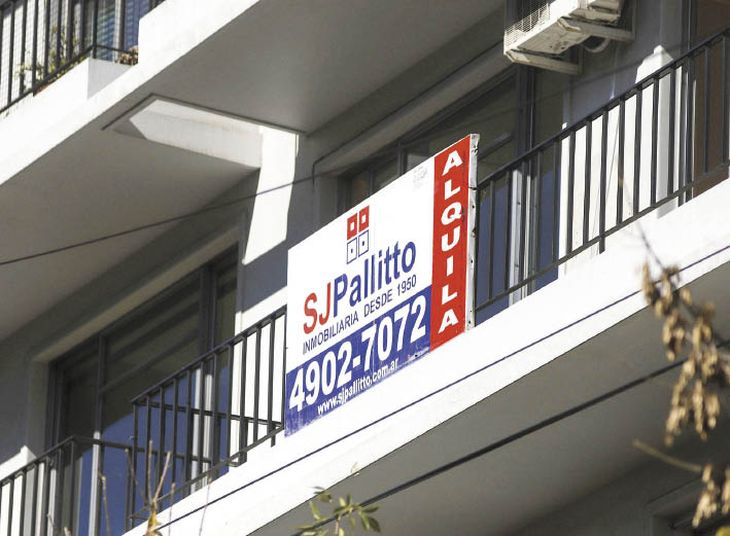He Buenos Aires head of government Horacio Rodriguez Larreta announced a series of measures to benefit the tenants and owners, whose objective is to alleviate the situation of the housing and housing crisis in the City of Buenos Aires. He also raised the need for “repeal the Rental Law”to advance in a new regulation of the sector.
On the one hand, it seeks strengthen existing programs through the City Housing Institute. In addition, we must add measures that aim at the tax reduction and the modification of regulations. The announcements of larreta They took place at Community Headquarters 12, in the Villa Urquiza neighborhood.
Rentals: what are the announcements for the City?
According to the announcement of larretathe benefits include different programs to facilitate rentals, with bonuses of up to 70% in surety insurance so that more people can rent without the need for an owner guarantee and simple credits with affordable fees to cover the month in advance, the deposit and the own cost of any move.
They will also be located loans for homeowners to improve their properties empty and offer them on the market in good condition and so that tenants can also renovate the properties they rent.
Facilities for tenants and owners
The goal is to offer solutions to tenantsincrease the housing offer for rent and generate incentives for the development of new options. The City will offer three programs via the IVC to make everything easier:
- Easier warranty. Up to 70% of the surety insurance will be discounted. So homeowners can use that insurance, which is much more reliable than a homeowner’s warranty. The tenants, in this way, would not need the owner’s guarantee and could face the cost of the surety insurance.
- Rent easier. A simple credit to move. Breaking down the barrier for those who can pay rent, but not entry costs.
- Easier repair. Finance renovations in vacant homes to increase supply. So that the owners can add value to their properties and can rent them in better condition; and for tenants to enjoy (paying less) a house in good condition.
rent.jpeg
Rentals in the City: one by one, the measures
Short term:
- Tools to lower entry barriers for tenants and expand supply.
- Expansion of different programs of the Institute of City Housing: +Easy Warranty, +Easy Rent, +Easy Repair and +Easy Advice.
- Extension of tax exemption of gross income for rental contracts, to improve the profitability of traditional forms of rental.
- Increase of the exemption ceiling of $75,000 to $220,000.
- The exemption was for a maximum of a second property and that limit will be passed to 3 properties.
- Encourage more apartments to be rented and registered.
- Exempt from ABL and real estate tax to rented units (with blank contracts, which register it in the IVC) for a certain term, between 1 and 2 years. There will be a tax value cap and a rental value cap, equal to the gross income.
In the medium term:
- Synergies between the public and private sectors, to increase the housing supply.
- Encourage construction in strategic areas of the City, reducing the surplus value that constructions should pay today.
- Exempt from the payment of 80% of the capital gain to real estate developments in Communes 3, 4, 5, 7, 8, 9 and 10 (it is the proposal, to be defined when the project is concerned).
- The types of works would be micro work, minor work and medium work.
Long-term:
- Open the City to new forms of housing.
- Generate a new legal framework to create a regime for co-housing in the City. Co-housing allows a community of people to live in a building without being the owners or tenants for an extended period of time and at a price below market value. The objective is to guarantee access to decent and accessible housing, maintain public ownership of the land and promote community management of properties. The scheme is changed: the IVC owns the surface and assigns real rights of use or horizontal property to the cohabitants through organizations.
P24 – Rent (NA)_opt.jpeg

Controversy. The Law, which was approved in November 2019 and entered into force seven months later, generated a lot of discontent in the real estate sector.
Unpredictable numbers
As stated larreta In the conference, “we know how much the initial rental value is, but we don’t know how much the tenant will end up paying.” Since the enactment of the law in jJuly 2020the rents increased by 343%well above inflation, which was 274% for the same period.
In January 2023 the median rental value of an studio was $70,218 per month. A two-room apartment is located on $89,615 per monthin a city that has 484 thousand tenants.
Every day it is more difficult to rent in the country. The fall in income, inflation and the national rental law caused the supply of housing to be reduced by half from 2013 to this part. According to our data, in the City it takes 4 months on average to get a property, and the rent represents between 40 and 50% of the income of the tenants.
This plan aims to reduce the time to get a property, facilitating access for those who need to move; and to stimulate the supply of rental housing, financing the renovation of houses so that the owners can offer them.
What will happen to surety bonds?
Owners should accept a surety insurance Compared to the owner guarantee because it guarantees compliance with the obligations assumed by the tenant in the contract, and provides greater agility and legal certainty than a conventional guarantee. The insurance company, before issuing the policy, does a credit analysis where solvency and ability to pay are verified. In case of non-compliance, the insurer is the one who responds, keeping the owner harmless. It is much more efficient and faster than other alternatives.
The surety insurance is executed in a short term (from 30 to 90 days, approximately), unlike proprietary guarantees that require long judicial processes to be executed. In parallel, the owner is exempted from facing a large part of the legal procedures, since the insurer provides legal assistance during the eviction process.
Of the 1,423,973 City properties, 138,000 are empty (9.2%), according to the last census. They respond in a not lesser proportion to houses that are inhabited some days of the week, some in very poor condition and others in legal proceedings.
In Berlin, for example, 80% of households are tenants, against 36% in Buenos Aires.
Source: Ambito




